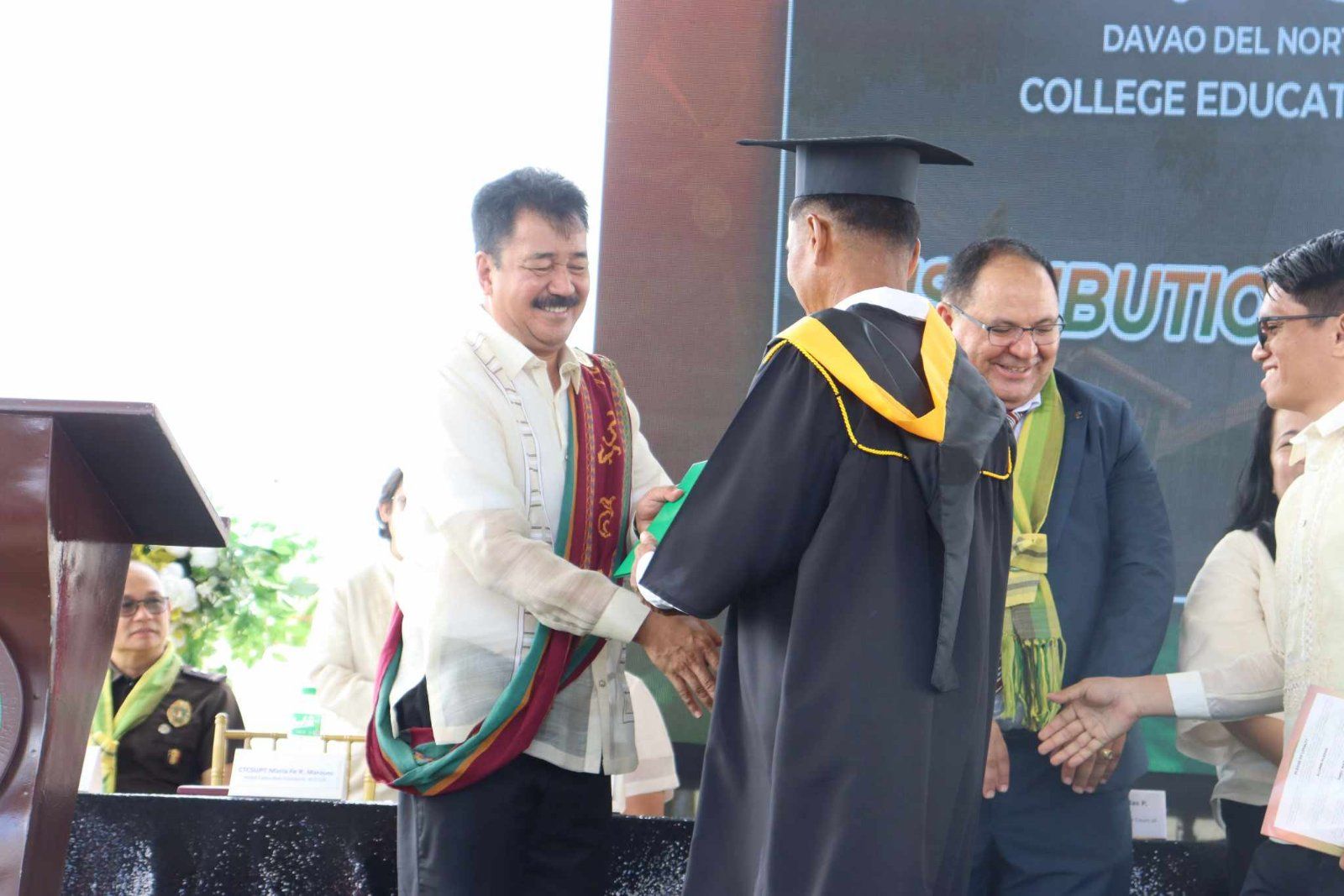Education behind bars: Six PDLs graduate college through CEBB program
The Commission on Higher Education (CHED) reiterated its commitment to ensuring that “no Filipino is left behind” when it comes to education.

This statement came after six persons deprived of liberty (PDLs) from Davao Prison and Penal Farm (DPPF) earned their college degrees on July 15 through the College Education Behind Bars (CEBB) program.
“Our PDLs have violated the law and are deprived of their liberty but not of their fundamental rights, including the right to receive education,” CHED Secretary Popoy De Vera said during his commencement address.
A partnership program between the government, a non-government organization (NGO), and State Universities and Colleges (SUC), the CEBB has allowed the PDLs to acquire tertiary education for free from Davao del Norte State College (DNSC).
“Just like the over two million young Filipinos outside, through CEBB, the PDLs have been allowed to study and graduate from college for free,” De Vera said.
He added that they were also beneficiaries of Republic Act 10931 or the Free Universal Access to Quality Tertiary Education Act.
The CEBB, CHED said, is the “first of its kind in the Philippines and in Asia to provide college education and to construct a physical college building inside the jail.”
It is a product of the partnership between SUCs, the Social Entrepreneurship, Technology, and Business Institute (SETBI), the Bureau of Jail Management and Penology (BJMP) in Region XI, the Dangerous Drug Board (DDB), the Bureau of Corrections (BuCor), and the support of the local government of Davao.
SETBI President and Founder Aland David Mizell explained that one way to reduce the cycle of incarceration and recidivism is through education and job training.
“We believe that investing in human resources, no matter who they are or where they come from, is the best investment to make,” he added.
Associate Justice of the Supreme Court of the Philippines Jose Midas P. Marquez said that due to the support and care of various government branches and SETBI, the PDLs have gained the “capability and confidence” needed to reintegrate into society.
CHED said the University of Southeastern Philippines was the first SUC to deliver the CEBB Program in the Davao City Jail in 2017, and it was replicated by DNSC to facilitate college education at Davao Prison and Penal Farm.
“I encourage USeP and DNSC to document their delivery of the CEBB program to inspire other HEIs across the country to replicate and launch similar initiatives in their respective localities,” De Vera said.
“We need more of this to ensure that in our education mission, no Filipino is left behind,” he added.
CHED said the program has produced more than 88 graduates to date. Meanwhile, more than 157 students are expected to enroll in the CEBB programs for the 2024-2025 school year.